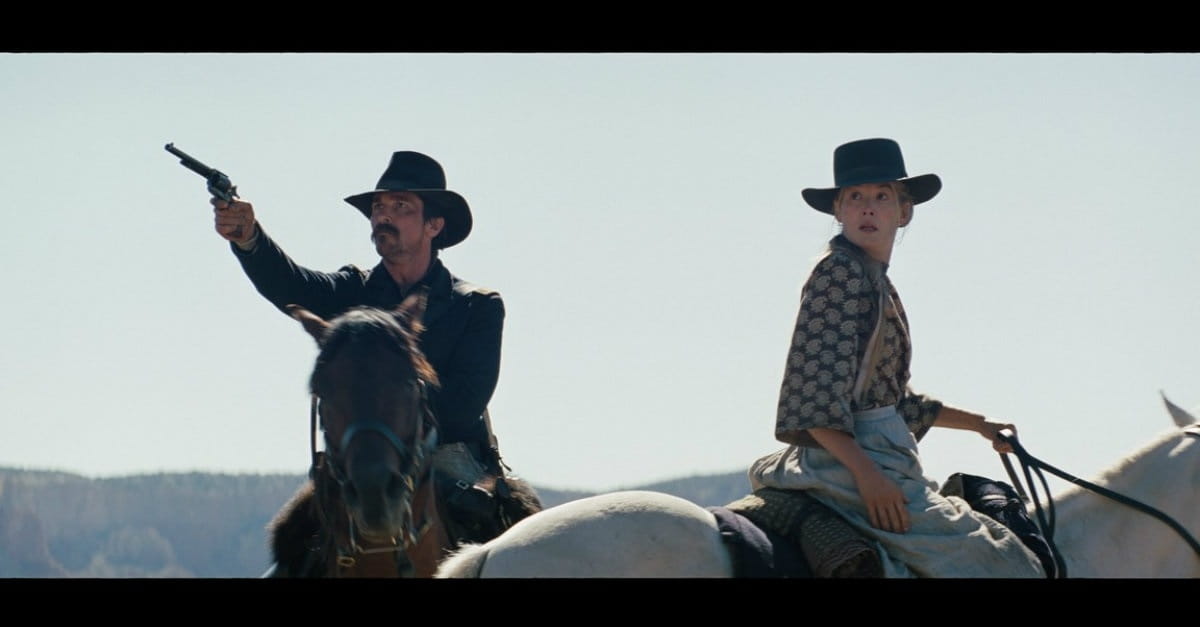Deja Vu Wades into Unfamiliar Waters
- Christian Hamaker Contributing Film and Culture Writer
- Updated Nov 11, 2010

DVD Release Date: April 24, 2007
Theatrical Release Date: November 22, 2006
Rating: PG-13 (for intense sequences of violence and terror, disturbing images and some sensuality)
Genre: Mystery/Science Fiction
Running Time: 128 minutes
Director: Tony Scott
Actors: Denzel Washington, Val Kilmer, James Caviezel, Paula Patton, Adam Goldberg, Bruce Greenwood
When one considers original works of cinema, the first name that registers probably isn't Jerry Bruckheimer, producer of such blockbusters as Con Air and Armageddon, as well as the successful "CSI" franchise on network television.
Nor is it likely that the name of director Tony Scott (The Last Boy Scout, Days of Thunder), brother of filmmaker Ridley Scott, springs to mind. Together, Scott and Bruckheimer are responsible for numerous soulless works of cinematic excess that, while often (but not always) financially successful, are formulaic and ultra-violent, yet rarely original.
With Déjà Vu, the director/producer team of Scott and Bruckheimer has given us a head-scratching big-screen treatment derivative of the duo's earlier output, but more philosophical and contemplative, at least in spots. It's not a profound work, nor is it head and shoulders above the filmmakers' earlier projects, but Déjà Vu may be the first film from either man to demand a second viewing - not only because of the complicated plot, but because of the existential issues it raises about God, man and foreordination.
Denzel Washington stars as ATF agent Doug Carlin, assigned to investigate an act of domestic terrorism. A bomb has detonated aboard a ferry, killing numerous passengers. When Carlin impresses an FBI agent (Val Kilmer), he accepts the agent's invitation to join a new investigative unit advancing a technology that allows the team to see into the past and discover clues to the crime.
With this sci-fi twist, the film becomes something wholly different from the big-screen "CSI"-like mystery it appears to be headed toward. Echoing the premises of the small-budget films Primer and Memento from a few years ago, Déjà Vu gives the big-budget treatment to the idea that we might be able to exploit time/space "worms," and go back in time several hours to affect the outcome of a particular event. It's all explained quickly - too quickly - as if the filmmakers fear that close scrutiny will expose holes in the basic idea underlying the plot device. Viewers who don't track well with the intricacies of time-travel plot lines will know there's trouble ahead when an investigator announces, "We've found a way to fold space back into itself" and the cosmic implications of transgressing something called the "Wheeler boundary," but such dialogue won't prevent those who are especially attentive to time-travel contingencies from having a field day with this movie.
In the film, Agent Carlin hopes to go back in time and prevent the death of Claire Kuchever (Paula Patton), a possible ferry-bombing victim with whom he feels a deep connection. The romantic angle is present but understated, at least on the verbal level; many of Claire's scenes show her in various states of undress, providing a rationale for Carlin's feelings that, on the surface, appears to go no further than skin deep. But as their relationship develops, the two discuss their belief in God, encouraging each other with words such as "God willing," even as Carlin manipulates the laws of physics to achieve a desired result. Nevertheless, the central relationship between the two attractive leads will have viewers rooting for Carlin to save Kuchever and find a way into her heart.
More troubling is the villain (James Caviezel), who spouts off about how "a little human collateral is the cost of freedom," and who sees himself as a god-like figure, carrying out a mission involving unspeakable human carnage. The stereotype of the zealous madman is wearisome, but the interplay between the murderer and Carlin is crisp and tense. The success or failure of Carlin's mission is in doubt until the film's final moments, and a coda raises some questions even as it answers others.
Compared with the overkill of Scott's and Bruckheimer's earlier work, Déjà Vu merits special attention. The time-travel element and faith language, while skirted over, suggest that there is more to this story than meets the eye, at least on first viewing. Such concerns may fade away upon second viewing, but the very idea that an additional viewing of this mainstream entertainment might be required to fully digest the storyline and its implications is oddly compelling. For a movie that starts out as something familiar - something we feel like we've seen before - such an evolution is encouraging.
CAUTIONS:
- Language: Various profanities.
- Violence: Domestic terrorism includes detonation of a bomb on board a boat, killing men, women, and children; a body is examined by a coroner; a man is shot, then lit on fire; scenes of destruction in New Orleans; a killer describes the way he murdered one victim; a taunt about a criminal's sexual activities once he's in jail; reckless driving; a man steals an ambulance; gunfire; a man is run down by an automobile.
- Sex/Nudity: Glimpses of a woman showering and in various states of dress; kissing.
- Smoking/Drinking: Joke about hash.
- Religion: A woman says grace before a meal; a funeral service includes religious language and the singing of "Amazing Grace"; discussion of man's ability to affect God's purposes in time and space; a Baptist church revival is depicted.














